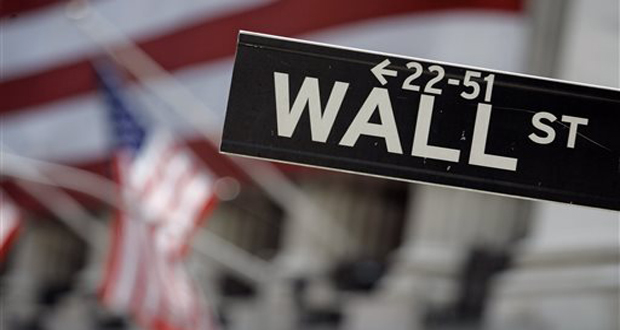Stocks around the world fell this week on worries that a new type of virus in China may ultimately hit profits for companies from Wuhan to Washington. The World Health Organization has held off on calling the outbreak a global health emergency but says it may become one.
The virus has killed more than two dozen people and infected more than 800, with the epicenter in the city of Wuhan in central China. The virus can transmit from human to human, which increases its potential spread.
WHY ARE INVESTORS WORRIED?
Past outbreaks of disease have caused sharp losses for stocks, at least temporarily. Stocks in Hong Kong lost about 10% in March and April of 2003 when the number of new SARS cases confirmed was accelerating, for example.
Besides the physical toll of illnesses and deaths, fear of disease can cause people to stop traveling, shopping and eating out at restaurants. Even if the disease stays mostly outside the United States, it can significantly impact profits for U.S. companies.
China accounted for 6% of all revenue for S&P 500 companies over the last 12 months, nearly double any other country besides the United States, according to FactSet.
“It can have broad impacts well beyond China,” Procter & Gamble CFO Jon Moeller told analysts on Thursday.
WHAT U.S. STOCKS ARE GETTING HIT HARDEST?
Companies that get lots of business directly from China, particularly in the travel industry. Both Las Vegas Sands and Wynn Resorts get the majority of their revenue from casinos in Macao, which is on the southern coast of China. Each lost more than 8% this past week.
Airlines have been hurt by worries that the outbreak will keep customers from flying not only to and from China but across the region. United Airlines dropped 8.7% this week. It has about 5.5% of its capacity allocated to U.S-China/Hong Kong routes, more than its big rivals, according to Stifel analysts.
But the impact could be felt beyond China. Consider Hawaii. Chinese tourists are the highest-spending visitors to the state, shelling out $349 per person per day in 2018. If Chinese vacationers stay home, U.S. hoteliers are vulnerable even if they have no locations in Asia.
European luxury companies as a group get about 35% of their sales from Chinese customers, including sales made in China and in Europe by visiting Chinese tourists, according to J.P. Morgan analysts.
SO ONLY TRAVEL AND RETAIL-ORIENTED COMPANIES ARE AT RISK?
No. Wuhan is also a big industrial center in China, with factories pumping out steel, smartphones and automobiles. That could raise costs for companies further down the supply chain.
DO OTHER RECENT OUTBREAKS GIVE A ROADMAP OF WHAT TO EXPECT?
The closest corollary to this new coronavirus may be severe acute respiratory syndrome, or SARS, in 2002-2003, which ultimately led to 774 deaths and infected nearly 8,100, according to the World Health Organization. More than 80% of the deaths were in China and Hong Kong. Both SARS and the latest outbreak began spreading during the month of December, ahead of the crush of travel scheduled for the Lunar New Year holiday, and travel-related stocks were among the first and hardest hit.
In general, stock markets tend to bottom with the peak in new cases during an outbreak, before rebounding within months, according to J.P. Morgan strategists.
Stocks in Hong Kong recovered all their SARS-related losses by the second half of 2003. The U.S. market was not as impacted and rose steadily for most of the year.
DOES THIS OUTBREAK LOOK LIKE IT WILL FOLLOW A SIMILAR PATH?
Experts are hopeful this outbreak may not be as severe because China is acting more quickly and forcefully.
As for corporate profits, the shift to online shopping in China could help mitigate the effects of people staying away from stores. But the move to digital life also carries risks: Social media is much more popular than it was in 2002-2003, and panic can shoot quickly through social networks.
Any sharp cutbacks in travel, though, will weigh on oil prices. China is the world’s biggest driver for growth in oil demand. Oil fell 2.5% Friday.
ARE THERE ANY POTENTIAL WINNERS IN ALL THIS?
Stocks of vaccine makers initially surged on speculation that their sales could get a boost. Analysts said Novavax, a company with a market value of $250 million, is exploring the development of a vaccine candidate for this new coronavirus. It jumped nearly 36% this week. Inovio Pharmaceuticals, which said it received a grant of up to $9 million to develop a vaccine against the new virus, was up nearly 29%.
Those big moves may be overblown, though. Raymond James analyst Chris Meekins said in a report that he doesn’t expect any U.S. government funding to address the issue anytime soon, which is what could really move the stocks.
When markets have tumbled in the past on pandemic worries, telecoms and other stocks known for having low volatility have tended to hold up better than the overall market.
(AP)











